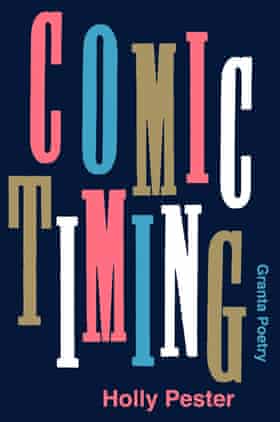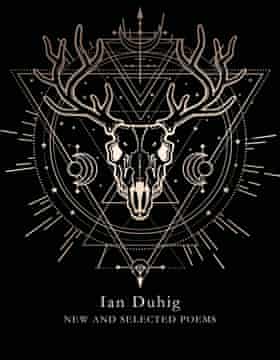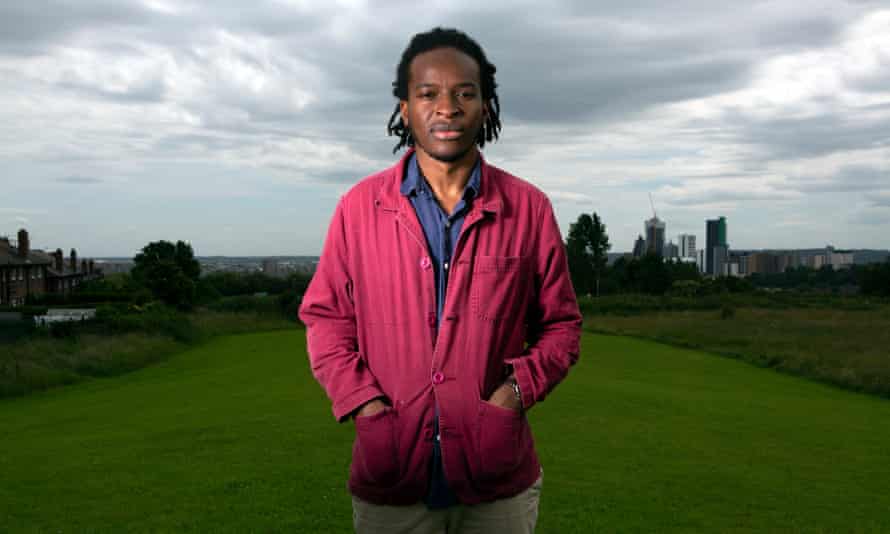 |
| The best poetry books of 2021. Illustration: Maïté Franch |
The best poetry books of 2021
Michael Rosen’s unflinching account of surviving Covid, a celebration of inner-city teaching and a fresh take on Shakespeare in the year’s standout collections
Rishi Dastidar
Mon 6 Dec 2021 09.00 GMT
Despite everyone’s hopes, the shadow of Covid-19 has been hard to escape this year. Michael Rosen’s account of his near death and subsequent recovery from the virus, Many Different Kinds of Love (Ebury), is one of the first of no doubt many reckonings with the pandemic. Rosen’s poems are supplemented by messages written by the NHS staff looking after him while he was in an induced coma. The book is unflinching, showing the ravages of being seriously ill – but hopeful and uplifting, too.
The crisis of climate change has seen poets reaching for new expressions to alter the narrative about the challenge we all face. Out of Time: Poetry from the Climate Emergency (Valley Press), edited by Kate Simpson, is the best eco-themed anthology to emerge this year, with poems that are dynamic, elegiac and hopeful. In a similar vein, Penelope Shuttle, in her wonderfully clarifying Lyonesse (Bloodaxe), paints a picture of mythic lands submerged under seas and the loss, personal and environmental, that follows.

Two exceptional debut collections grapple with physical and economic dislocation. Comic Timing by Holly Pester (Granta) is astringent and acutely funny on the cost of living – and being alive: “I hope therapy is real I hope it’s healthy it is expensive.” Meanwhile Victoria Kennefick’s Eat Or We Both Starve (Carcanet) braids ruminations on hunger, the body and the past through a viscerally rich and meaty language: “I lick the wall as if it were a stamp, / it tastes of bones, this smelly city”.
All the Names Given (Picador), Raymond Antrobus’s richly inventive second collection, traces the history of his family name – “so anciently English that it has become foreign to itself”. Inspired by Deaf sound artist Christine Sun Kim, the book is studded with startling “caption poems” that explore how sound can be presented and represented on the page. In a similarly restlessly brilliant vein is Living Weapon
by Rowan Ricardo Phillips (Faber), in which flights of fancy – sometimes literal – are grounded by a subtle and probing intelligence.

A generous mix of cosmic myth and earthy wit, Tishani Doshi’s fourth collection, A God at the Door (Bloodaxe), is wise and profound, with the lightest of touches: “You and I may never be butterflies, but we recognise one another / zoomorphic ancestor. We bow and reach for the invisible thing that beats.” Ian Duhig’s New and Selected Poems (Picador), meanwhile, is a wonderful career summary of one of our finest poets. It showcases his ability to blend the divine with the demotic, knowing salvation lies somewhere between the two; the newer poems sparkle, confirming that he remains in fine creative fettle.
Two more brilliant collections reminded us that formal dexterity is no bar to poems being utterly contemporary and delivering deep emotional riches. Kayo Chingonyi’s second book, A Blood Condition (Chatto & Windus), is one of the most arresting and beautiful set of poems of this or any year. His ability to blend music, grief and yearning is unmatched. And Hannah Lowe’s The Kids (Bloodaxe), inspired by her time teaching in an inner London sixth form, is a series of sonnets full of joy. The book is generous in its compassion, and in love with the idea of learning, in the classroom and outside it.

Considerations of the virtues of poetry, as well as its vices, can be found in A Vertical Art: Oxford Lectures (Faber), as delivered by Simon Armitage during his tenure as Oxford professor of poetry. Genially, sometimes waspishly, he expounds his belief in language as humanity’s most powerful tool, and poetry as the ultimate expression of its potential.
The year’s most pleasing books have been those that delivered the most unexpected delights. Marit Kapla’s Osebol (Allen Lane) renders the oral history of a small Swedish village since 1945 into verse. A variety of voices form a symphonic whole ruminating on seasons passing, people leaving and a way of life almost disappearing. Staying in the north, Maria Dahvana Headley’s radical translation of Beowulf (Scribe) turns the old epic into a rollicking tale for today, grabbing your lapels from its very first word, as Headley renders “hwæt” as “Bro!”
Finally, in the Forward prize-winning Notes on the Sonnets (Penned in the Margins), Luke Kennard takes Shakespeare to a house party you’d never want to attend. Through a cycle of anarchic, playful and despairing prose poems, he shows us the endless need we all have to connect: “If the dull substance of my thoughts were skin we’d walk along the skin-lined thoroughfare and pause under a fleshy, pulsating tree, I’d say, in all this hideous world you found me.” It’s a reminder of how poetry makes the world a touch less hideous.
THE GUARDIAN


No comments:
Post a Comment